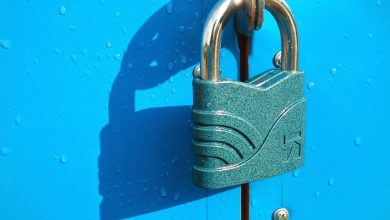How to Protect Your Private Keys from Theft

- Understanding the importance of private keys
- Best practices for storing private keys securely
- Tips for creating strong and unique private keys
- Protecting your private keys from phishing attacks
- The risks of storing private keys online
- How hardware wallets can enhance private key security
Understanding the importance of private keys
Understanding the significance of private keys is crucial when it comes to safeguarding your digital assets. Private keys are essentially the passwords that grant access to your cryptocurrency holdings. They are long strings of alphanumeric characters that should be kept secret and secure at all times. Without your private keys, you cannot access or manage your crypto funds, making them the most valuable piece of information in your possession.
Private keys are used to sign transactions and verify ownership of your assets on the blockchain. If someone gains access to your private keys, they essentially have control over your funds and can transfer them to their own wallet without your consent. This is why it is important to keep your private keys safe from theft or unauthorized access.
There are various ways to protect your private keys, such as storing them offline in a hardware wallet, using secure password management tools, and being cautious of phishing attempts or malware that could compromise your keys. By understanding the importance of private keys and taking the necessary precautions to keep them secure, you can ensure the safety of your cryptocurrency investments.
Best practices for storing private keys securely
When it comes to safeguarding your private keys, there are several best practices you can follow to ensure they are stored securely. Here are some tips to keep your private keys safe:
- Use a hardware wallet: Consider using a hardware wallet to store your private keys offline. Hardware wallets are considered one of the most secure methods for storing private keys.
- Encrypt your private keys: Before storing your private keys, make sure to encrypt them using a strong encryption algorithm. This adds an extra layer of security to your keys.
- Store backups in a secure location: It’s important to create backups of your private keys, but make sure to store them in a secure location, such as a safe deposit box or a secure cloud storage service.
- Avoid storing private keys on devices connected to the internet: To minimize the risk of theft, avoid storing your private keys on devices that are connected to the internet, as they can be vulnerable to hacking.
- Use a password manager: Consider using a password manager to securely store and manage your private key passwords. Password managers use encryption to protect your passwords from unauthorized access.
By following these best practices, you can help protect your private keys from theft and ensure that your assets remain secure.
Tips for creating strong and unique private keys
When it comes to protecting your private keys from theft, creating strong and unique private keys is crucial. Here are some tips to help you enhance the security of your private keys:
- Use a mix of uppercase and lowercase letters, numbers, and special characters to make your private key more complex and harder to guess.
- Avoid using easily guessable information such as your name, birthdate, or common words as part of your private key.
- Consider using a passphrase to generate your private key, as this can add an extra layer of security.
- Regularly update your private keys and avoid reusing them for different accounts or transactions.
- Store your private keys securely offline in a safe place, such as a hardware wallet or a secure USB drive.
By following these tips and being mindful of the security of your private keys, you can significantly reduce the risk of theft and unauthorized access to your sensitive information.
Protecting your private keys from phishing attacks
When it comes to protecting your private keys from theft, one important aspect to consider is phishing attacks. Phishing attacks are a common way that hackers try to steal private information, including private keys. To protect yourself from phishing attacks, it is essential to be vigilant and follow some best practices.
One way to protect your private keys from phishing attacks is to never click on links or download attachments from unsolicited emails or messages. These links or attachments could lead you to fake websites that mimic legitimate ones, tricking you into entering your private information.
Another important step in protecting your private keys is to always verify the source of any communication asking for your private information. If you receive an email or message asking for your private keys, contact the company or individual directly through their official website or contact information to confirm the request.
Additionally, consider using a hardware wallet to store your private keys securely. Hardware wallets are physical devices that store your private keys offline, making it harder for hackers to access them through phishing attacks or other online threats.
The risks of storing private keys online
Storing private keys online poses significant risks to the security of your digital assets. When private keys are stored on the internet, they are vulnerable to hacking, phishing attacks, and other forms of cyber theft. Hackers can use various techniques to gain access to your private keys, allowing them to steal your cryptocurrencies or other sensitive information.
One of the main risks of storing private keys online is the potential for unauthorized access. If a hacker gains access to your private keys, they can easily transfer your digital assets to their own wallets, leaving you with no way to recover them. Additionally, storing private keys online increases the likelihood of falling victim to phishing attacks, where hackers trick you into revealing your private keys through fake websites or emails.
Another risk of storing private keys online is the possibility of the online storage service being compromised. Even if you trust the service provider, there is always a chance that their systems could be hacked or breached, putting your private keys at risk. Additionally, if the service provider goes out of business or experiences technical issues, you may lose access to your private keys permanently.
How hardware wallets can enhance private key security
When it comes to protecting your private keys from theft, hardware wallets can be a game-changer. These physical devices offer an extra layer of security by storing your keys offline, making them much less vulnerable to hacking or unauthorized access. By keeping your private keys on a hardware wallet, you can significantly reduce the risk of having them stolen.
Another way hardware wallets enhance private key security is by requiring physical confirmation before any transactions can be made. This means that even if someone were to gain access to your computer or mobile device, they would still need to physically interact with the hardware wallet to approve any transactions. This added step makes it much harder for potential thieves to steal your private keys.
Furthermore, hardware wallets are designed to be tamper-resistant, meaning that they are built to withstand physical attacks and attempts to extract the private keys stored on them. This provides an additional layer of protection against sophisticated hackers who may try to compromise your private keys through physical means.
Overall, using a hardware wallet is one of the most effective ways to enhance the security of your private keys and protect them from theft. By keeping your keys offline, requiring physical confirmation for transactions, and being tamper-resistant, hardware wallets offer a level of security that is hard to match with other methods of key storage.



